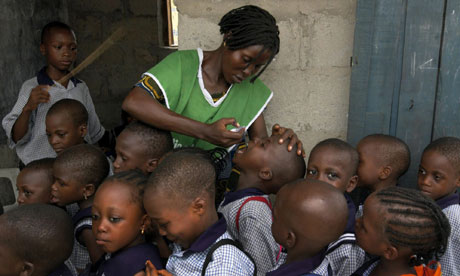In early August 2016, Nigeria was to announce it had been free of polio for two years; but the elation of defeating the disease on the African continent didn’t last long. Polio once again reared its ugly head when 2 new cases were discovered. Two paralysed children were found in the Borno State in Nigeria in August with a third child being tested positive for the disease even more recently in a refugee camp. In an attempt to contain the virus before it spreads out of the state, a first round of vaccinations had already been carried out. The vaccination campaign launched by World Health Organisation (WHO), the Centers for Disease Control, and Rotary International aims to reach 25 million children this year and will carry out five more rounds over a period of few months in areas covering the entire Lake Chad basin in Nigeria, Chad, Niger, Cameroon and the Central African Republic.
The sudden reappearance of the disease in Borno, that was being terrorised by Boko Haram, has led officials to believe that the disease is likely to spread to other parts of the state. Healthcare workers have once again gained access to populations because of the efforts of the Nigerian military forces who along with the cooperation of the militaries of neighbouring states liberated parts of Borno from the control of the Islamic terror group. Officials of the polio eradication campaign are now confident that the spread of the disease in Africa will come to an end because northeast Nigeria is becoming safer bit by bit and also because in recent years, the epidemic is being suppressed in other dangerous regions like Somalia and Syria.
Now almost all Borno villages can be reached, sometimes routinely or sometimes with armoured vehicles and soldiers in treacherous areas, like the town of Chibok, where the kidnapping of 300 schoolgirls in April 2014 appalled the world. More than 200 girls still remain missing. Healthcare workers from the WHO go to extraordinary lengths to fight the disease in these areas. Helicopters, all-terrain vehicles and even tricycle taxis are used by them to reach children in areas still controlled by Boko Haram and reckoned to be inaccessible to the government. Certain areas are too dangerous to reach by road and so helicopters deliver vaccines to already trained people on the ground in order to avoid suspicion. Traditionally men are not allowed into the home of a Muslim woman in the absence of her husband, thus making most vaccinators women. Starting from the refugee camps, over 1.5 million children have been vaccinated in a week alone. Hundreds of healthcare workers including the government, the United Nations and aid organizations have fanned out across Borno state to distribute the vaccinations through drops on the tongue. Several rounds are planned next year as the polio vaccine has to be given at least three times to each child, and up to five times in endemic areas.
The WHO has estimated that the polio virus has been circulating for five years in the north-eastern state of Borno, where Boko Haram began its insurgency in 2009. U.S. based risk analysis group Stratfor released a report in August saying that Boko Haram is “largely responsible” for restricting the vaccination efforts in Nigeria. Nine women were killed in 2013 by the terrorist group – who vehemently oppose western medicine – for vaccinating children against Polio. Dr. Matshidiso Moeti of the WHO, in a statement made after the second case was reported said, “The overriding priority now is to rapidly immunize all children around the affected area and ensure that no other children succumb to this terrible disease.” Even though Boko Haram is in retreat, it remains deadly. A humanitarian convoy was attacked by terrorists in July near Maiduguri, the region’s largest city. This forced the United Nations to put off aid to recently liberated areas where over half a million people are starving.
According to reports by Stratfor, despite the progress achieved, eradicating polio probably will not be possible without stubbing out the unrest linked with Islamic extremism that prevents vaccination in the three countries where the virus still is rife. Nigeria rejoined Pakistan and Afghanistan among the countries where Polio has not been completely eliminated. After years of striving to eradicate the disease, Nigeria which was 20 years ago the hub of the polio virus – recording 1,000 cases a year – was declared polio-free in September, 2015. It is still a common sight to see beggars, both men and women, with gnarled limbs crawling along the roadside asking for alms. In 1988, when the disease was rampant in over 125 countries, the global drive to end polio began. The WHO said more cases are expected to be diagnosed as Nigeria’s military drives out Boko Haram from more towns and villages, and as healthcare workers move towards the recently liberated populations.

